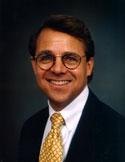Did the Founders of the Constitution Forget the Bill of Rights?

by Jacob G. Hornberger
April/May 2002
After the Constitution was ratified in 1788, the states adopted the first ten amendments, which became known as the Bill of Rights. Given the importance of the provisions in those amendments, an obvious question arises: Why didn’t the Framers of the Constitution include those provisions in the original Constitution, thereby obviating the need to amend the document so soon after it was ratified?
The answer lies in the radical way in which our ancestors viewed the nature of rights, government, and the Constitution.
A necessary starting point for understanding the perspectives of early Americans is the Declaration of Independence, which triggered the American Revolution against Great Britain in 1776. The Declaration expressed what the overwhelming majority of British colonists in America (the revolutionaries were British citizens, not Americans) embraced as a universal truth: that such rights as life, liberty, and the pursuit of happiness do not come from government but instead from “their Creator.” In other words, such rights are fundamental and inherent in human beings and therefore actually preexist government.
What then is the purpose of government? Thomas Jefferson, the author of the Declaration, explained that its purpose is to protect the exercise of those fundamental rights. While most people in society are peaceful, there is always the small minority that consists of murderers, robbers, thieves, invaders, and others who violently interfere with how other people are peacefully living their lives. Thus, we need government to arrest, prosecute, and punish antisocial individuals and to have sufficient power to effect such actions. That’s what Jefferson meant when he wrote, “That to secure these rights, Governments are instituted among Men.”
But what happens if government uses its power to infringe upon or even destroy people’s rights, as our Founders feared it might do? As the Declaration points out, in that case it is the right of the people to alter or abolish their government and to institute new government that would be more likely to protect their rights. What Jefferson was referring to was peaceful change through political action as well as, in extreme cases, violent change through armed revolution.
Undergirding the political philosophy of our ancestors was a severe distrust of a strong central government, even (or perhaps especially) a democratically elected one. (The Bill of Rights expressly restricts the power of the majority.)
When the Constitutional Convention met in Philadelphia in 1787, it was for the purpose of revising the Articles of Confederation, under which the United States had operated for some eight years. The delegates to the convention decided instead to propose a federal government to the American people, but the challenge they faced was: How could they persuade the people to accept such a proposal, given their strong distrust of a central government?
James Madison, the author of the Constitution, resolved the dilemma by using the Constitution to accomplish two things simultaneously: to call the federal government into existence but, at the same time, expressly limit its powers to those enumerated in the Constitution itself. The idea was this: We the people, whose rights preexist you, call you, the federal government, into existence with this Constitution; and given that your powers derive from us, we have chosen to limit them to those enumerated in the Constitution.
Thus, contrary to popular opinion, the Constitution does not grant any rights whatsoever to the people but instead expressly restricts and restrains government power.
The reason that the constraints on government power that are expressed in the Bill of Rights were not included in the original Constitution was that there was no need to do so given that the government’s powers were expressly limited to the few, limited powers that were enumerated. Since the Constitution did not enumerate the power to regulate religion, for example, the government could not exercise such a power. If a power wasn’t enumerated, it couldn’t be exercised.
That didn’t satisfy the American people, however, and especially not people such as Patrick Henry and George Mason, who were among the anti-federalists opposing the new form of government. They believed that government officials, given their nature, could never be trusted to constrain themselves within the Constitution’s list of limited, enumerated powers.
Finally, as a condition of accepting the Constitution and the federal government it brought into existence, people successfully demanded the adoption of the express restrictions on government power that are listed in the first ten amendments.
And that’s how we got the Bill of Rights — from our ancestors’ fierce love of liberty and their strong distrust of the federal government.
Mr. Hornberger is founder and president of The Future of Freedom Foundation (www.fff.org.) and co-editor of The Case for Free Trade and Open Immigration.
by Jacob G. Hornberger
Copyright © 2002 The Multiracial Activist. All rights reserved.

